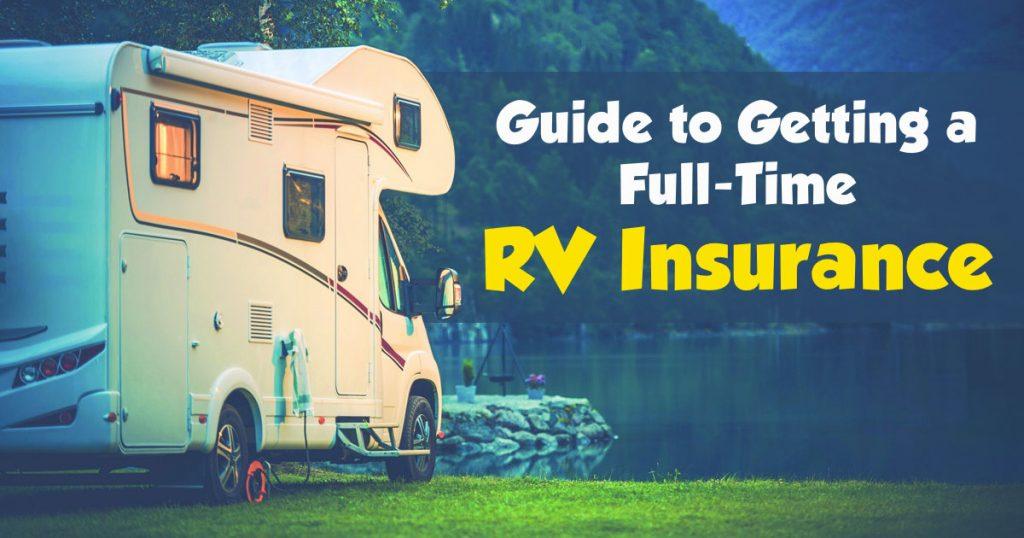Full-time RV insurance is extra protection for people who live in their RVs all year round. This is for people who have lived in their motorhomes or trailers for over six months. Sometimes referred to as permanently parked RV insurance, it helps cover you if there’s an accident, someone gets hurt, or something is damaged near your RV.
What sets apart full-time RV insurance from part-time or recreational RV insurance?
If you only use your RV sometimes or for vacations, you can get part-time RV insurance. It usually includes vacation liability coverage. It’s helpful if there are accidents or damages near your RV during short trips. But if you live in your RV full time, you might want full-timer insurance. It offers more protection for longer periods. The full time RV insurance coverage includes:
Vacation liability
If someone gets hurt in your RV and sues you, or if you accidentally damage something nearby, personal liability insurance can help cover you. It pays for medical and legal bills if you’re responsible for injuries, or for damage like a broken window from a wayward football.
Emergency expense coverage
If your RV is too messed up to stay in, this coverage can really come in handy. It pays for a temporary place to stay while your RV is fixed or replaced.
Adjacent structures coverage
This covers extra structures at your RV site, like sheds, decks, porches, or carports.
Personal liability coverage
If you live in your RV all the time, personal liability insurance can help if there’s an accident while your RV is parked. It might cover damage to property or injuries caused by the accident that you’re responsible for.
Loss assessment coverage
Loss assessment coverage steps in when an association needs to fix shared areas where your RV is parked and charges you for it. Your other coverages will be like those in standard RV insurance, such as comprehensive and collision coverage for your RV. Remember, vacation liability is part of your full-timers RV insurance.
Medical payments coverage
Medical payments coverage pitches in to cover hospital bills if someone gets hurt in your RV, regardless of whose fault it is. Full-time coverage, also applies when your RV is parked. It takes care of things like stitches, ambulance rides, X-rays, and other similar costs.
Diminishing deductibles
This isn’t just coverage; it’s a bonus. If you don’t make a claim for a year, your deductible will be cut on certain coverages by 25%. A deductible is the amount you need to pay first before your insurance kicks in to help. Plus, if you pick a higher deductible at the start, your monthly payment is usually less. If you don’t make a claim, your deductible drops, and your payment stays low.
Short-term coverage
Short-term RV insurance is like regular car insurance, covering basic things. It includes:
- Bodily injury and property damage: Step in to help the other person if you’re responsible for an accident.
- Comprehensive and collision: Protects your RV from crashes, theft, and other damage.
- Medical payments: It assists with covering hospital bills if you or your passengers get injured.
- Underinsured/uninsured motorist coverage: This comes into play if the other driver doesn’t have sufficient insurance.
How pricey is full-time RV insurance?
The price of full-time RV insurance changes depending on what kind of coverage you pick. It’s usually higher than regular insurance because it gives you extra protection, especially for liability. But if your RV is your main home or you live in it for more than six months a year, it’s worth getting this coverage.
Why do you need full-time RV insurance?
Staying in an RV all the time brings its own set of special risks. If your RV gets damaged and you can’t stay there, you might need temporary housing. If someone gets hurt in your RV and sues you, you could have to pay medical and legal bills. Plus, if you’re in an RV park, there could be extra costs, like HOA fees. Full-time RV coverage protects you from these risks and more.
Can you let others rent your RV on marketplaces if you have full-time coverage?
If you’re thinking about renting out your RV on platforms like Outdoorsy, it’s important to know that some insurance companies might not cover you if you have full-time coverage. So, if something goes wrong while someone else is renting your RV, you might not be covered by insurance. It’s smart to talk to your insurance company before letting others rent your RV to ensure you’ve got the right coverage.
Get Full-time RV Insurance for Your Safety and Well-Being
Thinking about full-time RV living? Make sure you know the contrast between full-time and part-time RV insurance. Full-time coverage offers extra protection for those living in their RVs year-round, including benefits like emergency expense coverage and personal liability protection. It’s really important to have insurance that fits how you live. And if you’re thinking about renting out your RV, it’s a good idea to double-check with your insurance company to make sure you’re fully covered. Stay informed and protected on your RV journey!
